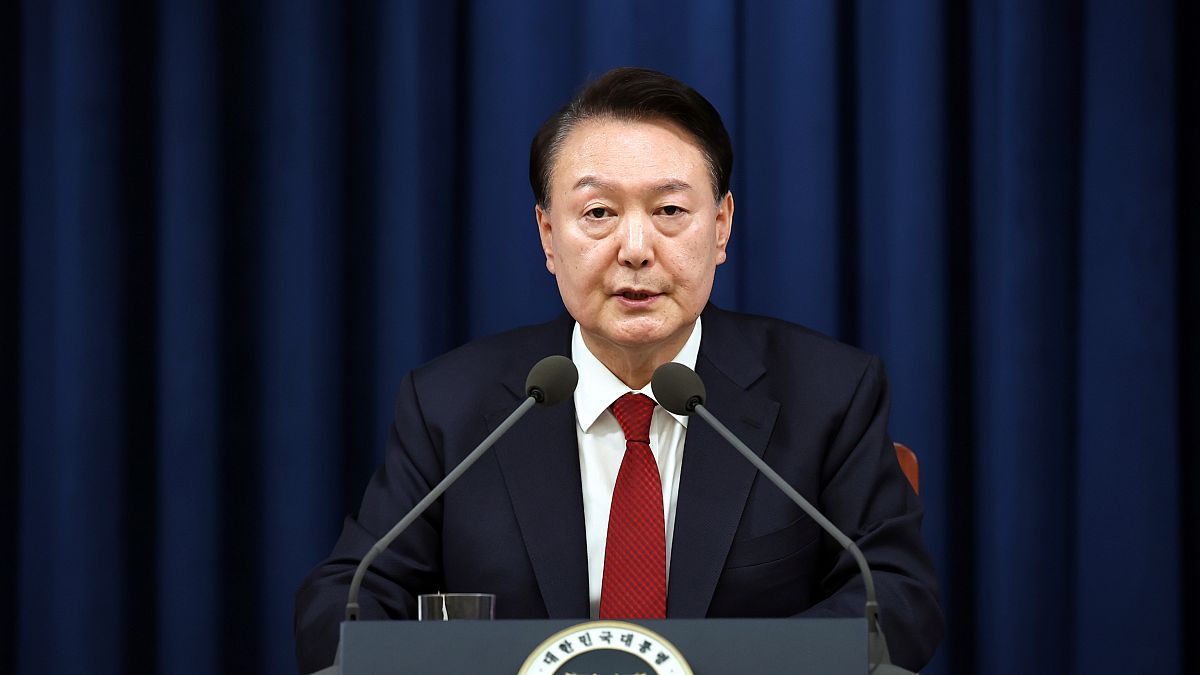German government’s fate to be decided in shadow of Trump win
Leaders of the three ruling parties are expected to decide on the coalition's fate in a meeting in Berlin late Wednesday.
BERLIN — Germany’s fractious three-party governing coalition is facing a critical decision day when it comes to its own survival, but Donald Trump’s win in the U.S. may alter the political calculus.
The leaders of the three coalition parties — Chancellor Olaf Scholz’s Social Democratic Party (SPD), the Greens and the fiscally conservative Free Democratic Party (FDP) — are expected to decide whether to keep the coalition intact during a meeting on Wednesday evening in Berlin, which could well turn into a long night of negotiations.
Trump’s victory is being depicted by the left-leaning coalition parties — the SPD and the Greens — as a reason to keep the coalition intact.
“My expectation is that everyone involved pull themselves together and not throw the largest and most powerful country in Europe into chaos after the U.S. is already in so much trouble,” Anton Hofreiter, a senior politician for the Greens, said on the Berlin Playbook podcast.
The government’s fate, however, mostly depends on the FDP, the smallest party in the coalition, which is seen by observers as the party that is most likely to pull the plug. The FDP is now polling at only four percent — below the threshold needed to make it into the German parliament in the next federal election, scheduled for September — and its leaders are mulling a coalition break in order to save their political futures.
Christian Lindner, the finance minister and FDP’s leader, recently wrote a policy paper, leaked to the media last week, calling for tax cuts and a scaling back of climate policies in order to stimulate economic growth — both positions that put the party at odds with his coalition partners. FDP leaders are already saying the U.S. election should not be decisive in the coalition deliberations.
“If we continue like this without decisive measures in the economy and in other areas, there is no need for a government in which the FDP is involved,” Michael Link, a FDP lawmaker and the government’s transatlantic coordinator, said in Berlin. “The idea that just because Trump has been elected, we’re going to be quiet and pull ourselves together, but basically just carry on like this, sorry, that’s not a solution, it makes the whole thing worse.”
Central to the negotiations is the adoption of the 2025 budget by parliament — in which a gap of at least €2.4 billion, and potentially far more, needs to be filled — as well as an agreement on measures to revamp the country’s ailing economy.
Trump’s victory is expected to put even more pressure on Europe’s largest economy. An analysis from the German Economic Institute (IW) estimates that a new trade war could cost Germany €180 billion over Trump’s four years in office.
Given the immense challenges Germany is now facing, particularly when it comes to its economy and defense, many are now calling for an end to the infighting.
“What we cannot afford is weeks of negotiation in the government, a lack of clarity in the government, and that is why today will be a very decisive day,” Lars Klingbeil, one of the leaders of Scholz’s SPD, said in an interview with Deutschlandfunk.”I hope that everyone will throw their party tactics overboard. That they look at this election result and think about what the right thing for this country is.”
In comments today, Scholz more broadly called on Germans to avoid the partisan splits that had defined the U.S. election.
“I firmly believe that a country is greater and stronger the closer its citizens stand together,” he said. “I hope that we in Germany will stay together. We may have different political and social views, but we live in one country.
Gordon Repinski and Hans von der Burchard contributed reporting
What's Your Reaction?


















































